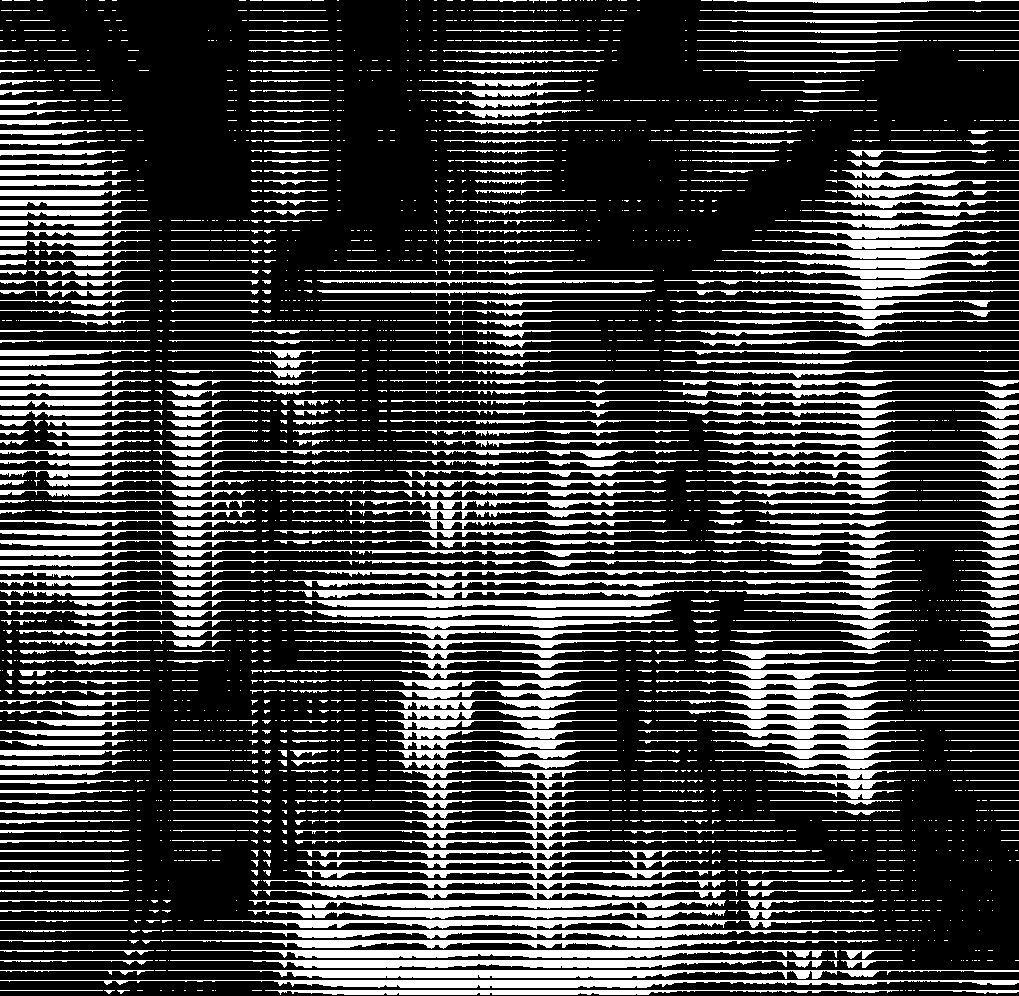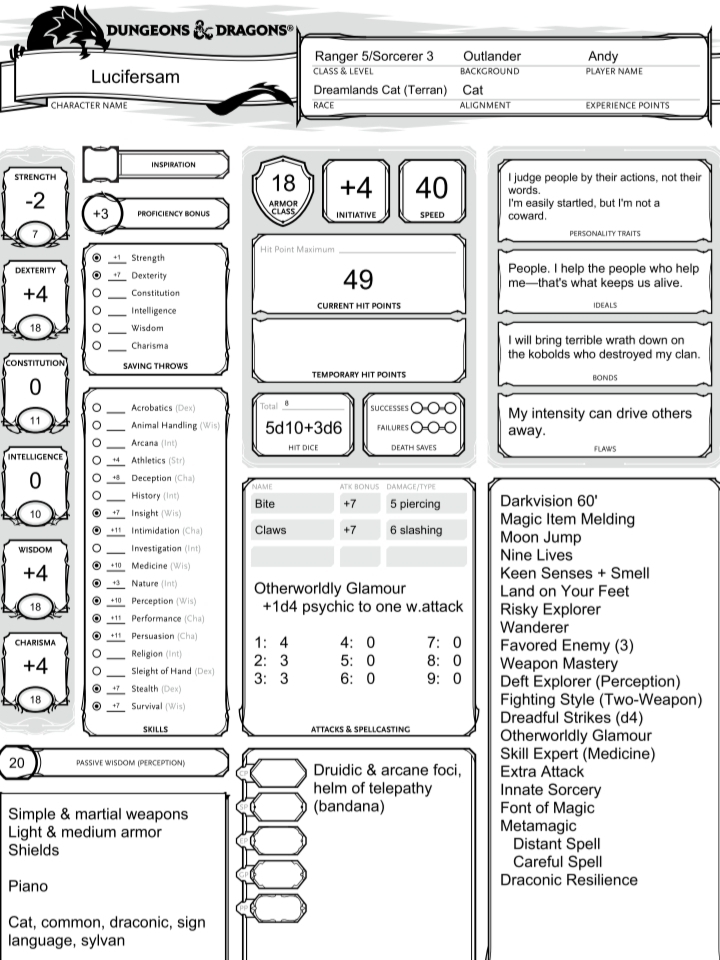I have started reading the book Debt: The First 5000 years. Initially, RPGs and World Building were not topics that crossed my mind when working through the first couple of chapters. Then, the other night, I was casually watching a Matt Colvile YouTube stream, and he says this:
I heard that like, that notion of bartering as an economic model, that has never happened. What you get is, you get, it's almost like a [patwa?], its like two different cultures meet for the first time where they do bartering, I'll give you these goats for these two chickens, and after that brief period, which is probably measured in a couple of years they come up with a medium of exchange, right? And then they don't need that bartering thing anymore, and I thought oh that's interesting...
Chapter 2 of Debt is titled "The Myth of Barter". Here is the third paragraph, which I think encapsulates the problem with barter as this mythical economic model:
A history of debt, then, is thus necessarily a history of money—and the easiest way to understand the role that debt has played in human society is simply to follow the forms that money has taken, and the way money has been used, across the centuries—and the arguments that inevitably ensued about what all this means. Still, this is necessarily a very different history of money than we are used to. When economists speak of the origins of money, for example, debt is always something of an afterthought. First comes barter, then money; credit only develops later. Even if one consults books on the history of money in, say, France, India, or China, what one generally gets is a history of coinage, with barely any discussion of credit arrangements at all. For almost a century, anthropologists like me have been pointing out that there is something very wrong with this picture. The standard economic-history version has little to do with anything we observe when we examine how economic life is actually conducted, in real communities and marketplaces, almost anywhere—where one is much more likely to discover everyone is in debt to everyone else in a dozen different ways, and that most transactions take place without the use of currency.
This idea, that most historical means of exchange were handled without the use of currency, has some rather large and freeing implications for playing your bog-standard Fantasy Land™ RPG.
One of the core issues I, and many others it would seem, had when running / playing D&D5e boiled down to this:
- I never knew how much anything should cost from a "general goods" store or some "magic shop".
- I never knew how much gold should be rewarded to players for doing basically anything.
- My players never knew what to use gold for at all, or thanks to some class abilities, never needed gold for food or shelter, which was 99% of all gold sinks early on.
This stems in some ways from the relationship between treasure and progress in the original Dungeons and Dragons, published in the 70s. Much of the "how" regarding playing D&D at the time was in massive flux and wildly varied from group to group and region to region. There is a book that I very much want to read that covers these early days in detail through analysis of zines from the time called The Elusive Shift by Jon Peterson. The rules as written effectively give the GM broad authority to award experience points however they want, but softly suggest they start with awarding them for slaying monsters and collecting treasure.
My understanding, and I do not have sources in front of me, is that this experience for treasure was only calculated once you returned to the "overworld". Whatever was left behind, does not count. In this way, progress was deeply tied to the extraction of gold, as in some cases you would earn 1 exp for every 1 GP you successfully looted to the overworld. This relationship made large sums of gold very attractive to players and likely dictated the design of dungeons to feature more gold than you could carry. Even then, in the early days of Chainmail and eventually D&D, there was wide and heated debate about the nature of progression. Some felt that having this "scoreboard" which generally was tied to looting and killing, left little room for your players to engage with the character they had built, and instead were simply leveraging the underlying mechanics to get a higher "score" faster. It would seem, these debates never ended, almost half a century later.
Much like every economic textbook ever written, people's lack of understanding of historical economies causes them to skip straight to monetary exchange as the primary mode of trade within our games. It would appear that we cannot escape the same kind of myth building within our little games of Medieval Fantasy. Observe the myth building as illustrated by Graeber in chapter 2 of Debt:
It’s important to emphasize that this is not presented as something that actually happened, but as a purely imaginary exercise. “To see that society benefits from a medium of exchange” write Begg, Fischer and Dornbuch (Economics, 2005), “imagine a barter economy.” “Imagine the difficulty you would have today,” write Maunder, Myers, Wall, and Miller (Economics Explained, 1991), “if you had to exchange your labor directly for the fruits of someone else’s labor.” “Imagine,” write Parkin and King (Economics, 1995), “you have roosters, but you want roses.” One could multiply examples endlessly. Just about every economics textbook employed today sets out the problem the same way. Historically, they note, we know that there was a time when there was no money. What must it have been like? Well, let us imagine an economy something like today’s, except with no money. That would have been decidedly inconvenient! Surely, people must have invented money for the sake of efficiency.
It, too, would seem that money in D&D was invented for the sake of efficiency as well. This notion of treasure (mainly gold) as a measure of progress for your character appears to me as reflective of deeply engrained capitalist ideology. It has a twofold character, one that is reflective of the beliefs of the creators of the game, and one that serves as a simple foundation for the masses of people who engage with the game. The more money you gain, the more powerful you are, this is known. However, this eventually leads to the development of economic gameplay that unfolds into a world of Medieval Fantasy with Modern Capitalist Characteristics. This relationship culminated with the production of the official, and farcical Dungeons and Dragons: Acquisitions Incorporated rule book, providing tongue in cheek rules that allow you to play as your very own Adventure Capitalist.
What I am just now learning, as I write this, though, is that money seems to have taken an even lesser position within the game as of the 2024 edition. In 5e (2014) "Coins" is featured on the front of the character sheet. There are several feats and class features that allow you to effectively get "free food and rooms" anywhere you travel (the By Popular Demand feature for bards, as an example). In the 2024 edition, however, coins can be found on the back of the character sheet. Features like "By Popular Demand" appear to have been removed. Though, this appears to me a result of the "epic fantasy role-play" camp winning out over the "dangerous dungeon delving and treasure hoarding" camp, where-in you need not interact with the "economy" of the world since you're all effectively "The Avengers".
I can hear you back there, wondering, "Rid Wizard, what the fuck are you on about?" So let me advance to the point. If we take what Graeber says in at least the first couple of chapters of Debt as a kind of guiding principle over the nature of the worlds we build, we can build a far more interesting and complex web of narrative opportunities, while simultaneously having answers for what to do with all this gold. Consider the quote above, specifically the final part:
The standard economic-history version has little to do with anything we observe when we examine how economic life is actually conducted, in real communities and marketplaces, almost anywhere—where one is much more likely to discover everyone is in debt to everyone else in a dozen different ways, and that most transactions take place without the use of currency.
The small communities living within the baronies borders likely live a much more communal life than how most GMs typically depict them. These communities are full of subsistence farmers, and also produce something of value that is collected by the Barron's Knights every season. The external relations the community has with its Baron is one of service. They are provided land, and in exchange are in service to the Baron. Internally, their relations are also driven by service to one another. How they are related engenders the reason for service. A squire in a life debt to a local Knight. A father laboring out of love for his family. A prisoner laboring for the community for which she harmed. Each family and person owes each other their labor for one reason or another, but ultimately labors to ensure the Barron gets his, and so the community isn't left struggling.
Between Baronies, gold is obviously the medium of exchange, and within the walls of the keep that sits at the heart of the baronies, gold takes the place of most exchanges, especially between the larger trade guilds, which are paid by the Baron in gold for the goods they exchange externally. Gold is minted and managed by the Baronies' administration, it is, after all, a product and function of the state.
Labor, on behalf of villagers and our intrepid heroes, should be the primary means of exchange that drives the adventure and story. What motivates a person to become an adventurer? Running way from debt? Seeking to repay a debt? Seeking to expunge a debt through dispatching with the creditor? Debts, in this context, are not strictly a numerical sum of goods or gold that needs to be accumulated before the debt is wiped clean. A person can owe another any number of things, and the most dire of all would be their life.
At some point, debts need to be collected, and your heroes could find themselves being those debt collectors, or running from those debt collectors. Everyone is owed something by someone, you may have to put yourself in debt to a small time thug to go after the big time boss. Perhaps, to earn your magical attunement, you had to make a pact with a Fay, Fiend, Devil or Demon. The Barony is secretly in debt to the red dragon that lives in the mountains, and it has come to collect! The Baron is secretly a Red Dragon, using his long life and political status to amount a vast hoard of gold and treasure, throwing the Baronies into war in hopes to grow its hoard.
The gold you have collected can be still exchanged, but what it gets you is far grander than a simple potion at the local magical goods store. Gold for large tracks of land, gold for your own keep on the border land, gold for a private audience with the Baron, gold for a tavern within the keep, gold for a mercenary company willing to breach the Gates of Hell. If gold is principally used to move city states, then you may have the ability to impose great influence over a city state. After all, "If you owe the bank a hundred thousand dollars, the bank owns you. If you owe the bank a hundred million dollars, you own the bank."
What of rewards? Again, much of the above, could be the reward your party earns. A run-down tavern at the edge of a small village the party has aided. The Baron grants you the title of Knight and as such grants you dominion over a small village within the Barony as well as privileged access to the keep. A position of authority within a trade guild. Access to a personal blacksmith, who owes you his life.
And what of buying magical items? This, I think, is where we loop all the way back around to barter. While no civilization has ever had barter as their primary mode of exchange, that isn't to imply that barter doesn't play a role in many societies and civilizations. The later half of Chapter 2 in the book Debt discusses a few ethnographic accounts of barter found in the world.
What all such cases of trade through barter have in common is that they are meetings with strangers who will, likely as not, never meet again, and with whom one certainly will not enter into any ongoing relations. This is why a direct one-on-one exchange is appropriate: each side makes their trade and walks away. It’s all made possible by laying down an initial mantle of sociability in the form of shared pleasures, music, and dance—the usual base of conviviality on which trade must always be built. Then comes the actual trading, where both sides make a great display of the latent hostility that necessarily exists in any exchange of material goods between strangers—where neither party has no particular reason not to take advantage of the other—by playful mock aggression, though in the Nambikwara case, where the mantle of sociability is extremely thin, mock aggression is in constant danger of slipping over into the real thing. The Gunwinggu, with their more relaxed attitude toward sexuality, have quite ingeniously managed to make the shared pleasures and aggression into exactly the same thing.
Recall here the language of the economics textbooks: “Imagine a society without money.” “Imagine a barter economy.” One thing these examples make abundantly clear is just how limited the imaginative powers of most economists turn out to be.
Barter, then, naturally fits right into our bag of tricks as GMs. Barter, in this context, is dramatic, it can be full of tension and drama:
A party of Rat-Catchers spots the flowing smoke and flickering fire of what is clearly a campsite of another band of Rat-Catchers. The camp, always with one person on watch takes note of their presence. Neither knows the intentions of the other, and what kind of danger they represent. What they both understand, is that all rat-catchers travel with considerably more heat than your average soldier. Do they look green, or do they have the jagged appearance of well-traveled veterans? It is considered rude and often suspicious to not stop and converse, not doing so raises hairs and plants a target on your back, but doing so might just as well. The camp sends a signal, the whisle of a bird not native to this wode from the Druid. The other signals back with the same forign bird song. The members of the camp stand, and offer a welcoming gesture. The others nod in agreement and enter the camp. Greetings are shared, albet with some aprehension, as everyone settles the stories begin. Each party shares of their exploits, carefully telling the most exciting, but least interesting version of their stories. Let too much info slip, and you might become a valuable target to extort for information on a new and larger score. Have nothing to say, and you might be perceived as easy pickings, your loot for the taking. Stories of your escapades are shared over a joint meal, no group of Rat-Catchers in the night will let the other go hungry, not worth the bad reputation. Sometimes these chance meetings end with a good meal and grand stories for the bards to transcribe. Sometimes these meetings turn into a heated ritual of exchange, where one party member seeks an item of value from another. Arguments and demonstrations insue, the laying out of goods to be parted with, negotiations drive tensions. In the end, each walk away with something new or unusual, something of equal or greater value then what they started with. The fires are put out, the party continue on their journey, likely to never see the other again. It's a big world out there after all.
Be more imaginative than most economists, fill your world with interesting and complex means of exchange, devoid of copper and gold. Imagine your world complexly, even its modes of exchange.







